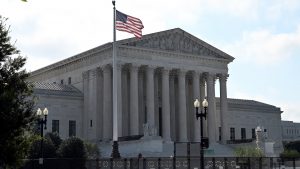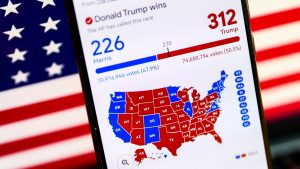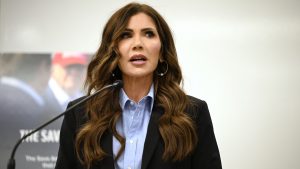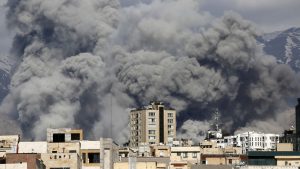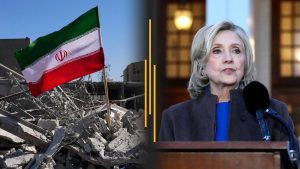What to know about Trump’s meeting with South Africa over genocide claims
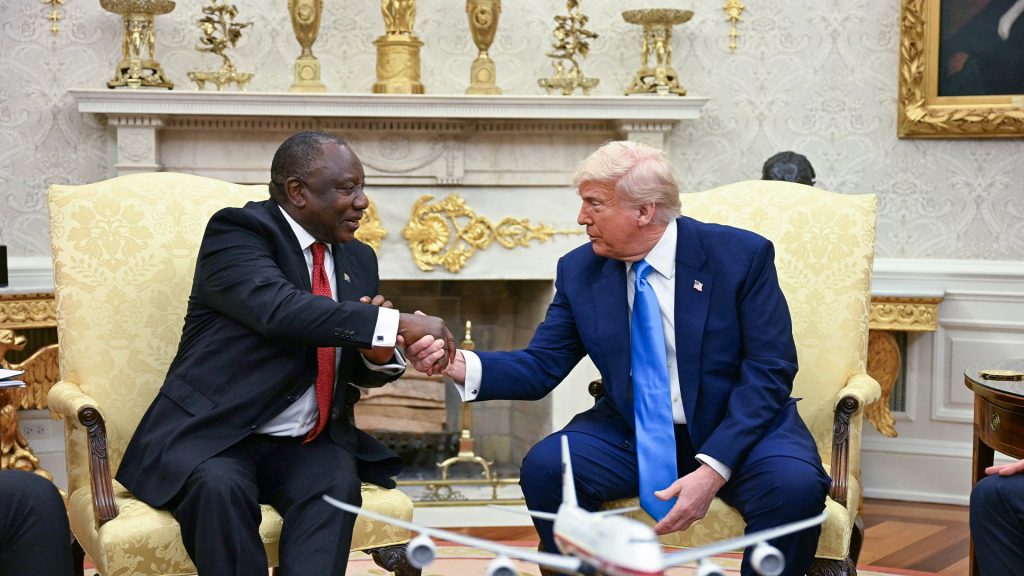
South African President Cyril Ramaphosa traveled to the U.S. to “reset relations” amid tensions over allegations of genocide being committed against white people in South Africa. The South African president has repeatedly denied these allegations — and did so again during the highly publicized meeting.
Trump plays video during Oval Office meeting
During the sit-down, President Donald Trump ordered the lights to be dimmed as he played a video, which he described as evidence of ruthless killings of white people taking place under Ramaphosa’s leadership. The video featured Julius Malema, a political leader from the left-wing populist party, calling for the murder of white citizens in front of a crowd. The video also shows a roadside memorial marked by white crosses, which is likely from a social media video that has been making the rounds for several years.
Ramaphosa denounced the rhetoric and actions in the video, calling them separate from official government policy.
Unbiased. Straight Facts.TM
According to AfriForum, an NGO representing Afrikaners, there were 50 murders on South African farms in 2022 and 49 in 2023.

“Our government policy is completely, completely against what he was saying, even in the Parliament,” Ramaphosa said. “And they’re a small minority party which is allowed to exist, in terms of our constitution.”
Before departing for the U.S., Ramaphosa posted a video on X, further rejecting genocide claims.
“Well, we all know as South Africans — Black and white — there is no genocide here,” he said.
Trump: ‘I haven’t made up my mind’
After speaking and taking questions for over an hour, Trump was asked whether he still believed genocide was happening in South Africa.
“Well, I haven’t made up my mind,” Trump responded. “I hate to see it from the standpoint of South Africa, but also, you know, I’m trying to save lives.”
Elon Musk attends meeting, criticizes South African laws
Also in attendance was Elon Musk, a South African native who has previously suggested that white people in the country are being targeted and killed based on race.
Musk has publicly criticized South Africa’s Black-ownership laws, which require 30% of a company to be Black-owned. He says those laws have prevented him from launching his satellite company, Starlink, in the country.
“First of all, you should be asking why are there racist laws in South Africa, that’s the first problem,” Musk said during a Zoom call at the Qatar Economic Forum on Tuesday, May 20. “Now I’m in this absurd situation where I was born in South Africa but cannot get a license to operate Starlink because I’m not Black. Does that seem right to you?”
South African business leader advocates for Starlink
Businessman Johann Rupert, also invited to the Oval Office meeting, weighed in on the issue and supported the idea of bringing Starlink to South Africa as a crime-fighting resource.
“We have too many deaths, but it’s across the board,” Rupert said. “It’s not only white farmers — it’s across the board. We need technological help. We need Starlink at every police station.”
Refugee policies spark clash in Congress
Here in the U.S., the situation in South Africa has become a point of contention. Tensions between Republicans and Democrats have grown after Trump admitted dozens of white South African refugees claiming persecution.
The issue came to a head during a fiery exchange between Sen. Tim Kaine, D-Va., and Secretary of State Marco Rubio.
“You are entitled to entrance as a refugee if you demonstrate a well-justified fear of persecution,” Kaine said. “So, can you have a different standard based on the color of somebody’s skin — would that be acceptable?”
“I’m not the one arguing that,” Rubio responded. “Apparently, you are, because you don’t like the fact that they’re white, and that’s why they’re coming. You’re the one talking about the color of their skin, not me. These are people whose farms were being burnt down because of the color of their skin.”
US froze aid, G20 summit attendance unclear
Amid the allegations of genocide and ongoing controversy, Trump froze foreign aid to South Africa in February. Ramaphosa, for his part, reiterated that trade talks were a key goal of his trip to the United States.
It remains unclear if Trump will attend the upcoming G20 summit in South Africa this November. The administration had previously said he would not go, citing South Africa’s policies as not aligning with U.S. policy.
While Trump didn’t confirm attendance during the Oval Office meeting, he did emphasize the importance of a U.S. presence at the event.

